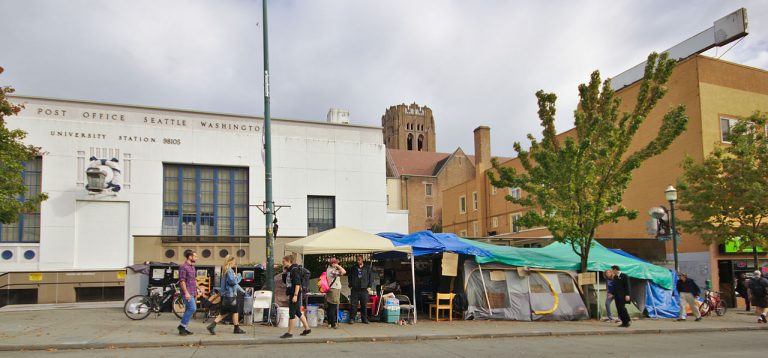Published on September 1, 2020

For the first time since government officials began collecting data on the thousands of people living homeless in King County, a new category on people’s tribal affiliations will soon be added to the system.
The move comes after a years-long push from Native homeless service providers to collect better information on Native people in the county’s federally mandated homelessness database. In recent years, these providers have demanded other homelessness data collection changes that have revealed even more drastic racial inequities in homelessness than previously reported.
An estimated 15% of King County’s homeless population is American Indian or Alaska Native, according to the county’s most recent one-night count of homelessness. The estimate two years ago was just 3%, before Native organizations challenged the count’s accuracy and worked with the county to reform the survey.
The tribal designations are another piece of trying to reform the homelessness system to better serve Native people, according to Wellspring Family Services deputy housing director Nawiishtunmi Nightgun, an enrolled member of the Yakama Nation who is also of Blackfeet descent.
Understanding a person’s tribal background helps service providers better match people with help, Nightgun said, and helps people feel seen throughout the process.
“That’s the main importance of [the] tribal designations,” Nightgun said. “To be seen. To be seen on our own land, for who we are.”
Doing so could also help organizations begin to reconnect newer generations of urban Indians to tribal identities disrupted by U.S. government policies like the Urban Relocation Program of the 1950s, Hill added, which moved thousands of tribal members away from reservations and into cities.
At the same time, those migration patterns led to major urban Indian activist movements that shaped the future of cities like Seattle, said Josh Reid, director of the Center for the Study of the Pacific Northwest, an associate professor of American Indian Studies, and the John Calhoun Smith Memorial endowed associate professor of history at the University of Washington.
Reid, a member of the Snohomish Tribe of Indians, said he was supportive of the idea to add tribal designations to the system and curious to see how it plays out.
“Native identity is really complicated,” Reid said. “You have a lot of people who have multiple citizenship claims in different Native nations, like through their parents and extended family.”
Continue reading at The Seattle Times.
Originally written by Sydney Brownstone for The Seattle Times.